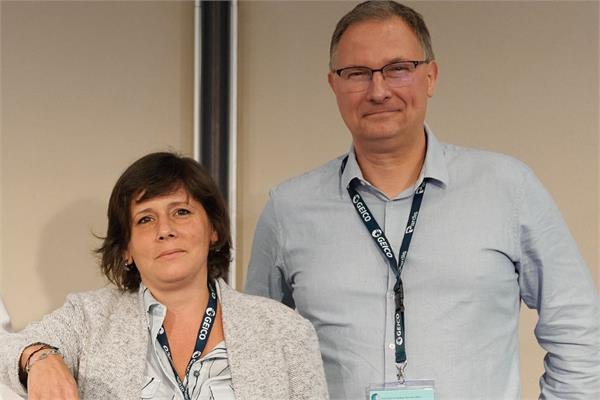
PPG Coraseal 4-Wet Sealer cures in just one step and provides sustainability benefits for Stellantis paint shops by reducing energy use and CO₂ emissions.
The international paints and coatings manufacturer PPG has announced energy savings and emission reduction resulting from the use of PPG CORASEAL® 4-Wet Sealer in Stellantis’ light commercial vehicles (LCV) production.
The results of the implementation at Stellantis' LCV plants were jointly presented by Franck Lepetit, PPG product engineer for Automotive OEM Coatings, and Sophie Carpentier, Stellantis sealants technical leader, at the Strategies in Car Body Painting conference hosted by the Automotive Circle in Berlin last month. The speakers highlighted that the process significantly contributes to achieving their companies' sustainability targets.
“Transitioning to the PPG Coraseal 4-Wet Sealer offers several sustainability and performance benefits to OEMs. When compared to the 3-Wet system, it can lead to a reduced environmental impact, reducing energy consumption by nearly 8%, cutting CO₂ emissions by nearly 5% and enhancing productivity. Additionally, the need for fewer curing steps also simplifies maintenance processes and reduces costs,” has stated Thierry Destruhaut, PPG sustainability business partner, Automotive OEM Coatings.
Traditionally, automotive OEM paint shops used a curing process that involved a sealer oven, a primer oven, and a topcoat oven. The PPG B1™ process streamlined this by reducing the process to just the sealer oven and the topcoat oven. With the introduction of the PPG Coraseal 4-Wet Sealer, the process has been further simplified to require only the topcoat oven. This advanced system is compatible with most water-based and solvent-based coatings.